Tim Flach is a photographer known for his impressive portraits, where animals are treated like models of celebrities. This photographer took pictures of both wild and domestic animals.
This time Tim Flach is once again focusing on rare bird photos and below are his works of art.
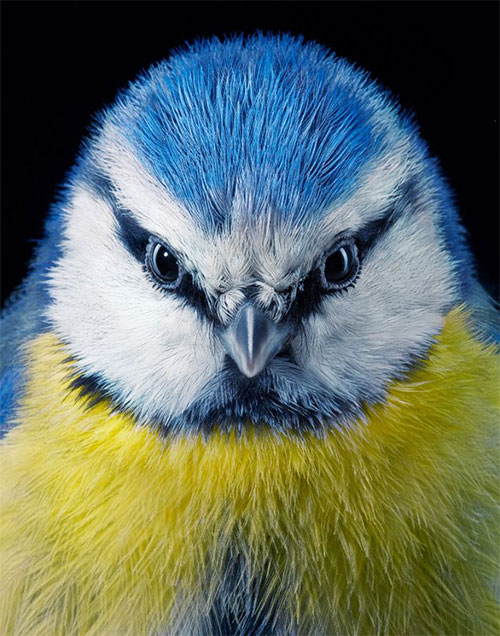
The blue tit is also known as the green corn, it is a species of bird in the Paridae family. This bird is easily recognizable with blue-yellow plumage. The male has a spot on the head that reflects ultraviolet light, which is shown in front of the female through a tousled position on the nape of the neck. This bird is generally sedentary and non-migratory, is common and is common throughout Europe and Western Asia in temperate and subpolar forests of deciduous or mixed forests with a high proportion of oaks. They are usually
nest in tree holes, although they easily adapt to nest boxes if needed. The main adversaries of nests and foraging are much larger sparrows. The green corn sparrow likes to eat insects and spiders. In addition to the breeding season, they also eat seeds and other plant-based foods. The green corn sparrow is famous for its ability to cling to outermost branches and hang upside down when foraging for food.
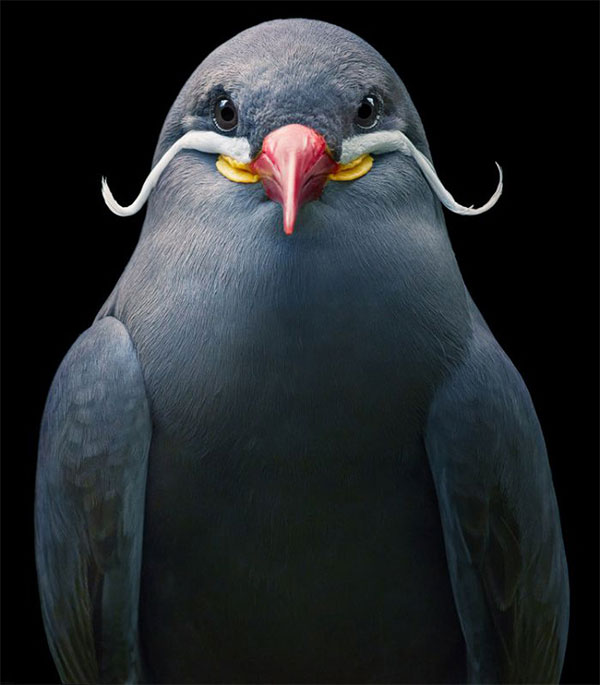
Inca Tern – The Inca Gull is a bird that belongs to the Laridae family. This seabird mainly inhabits the waters of Peru and Chile. They have gray hairs, legs and an orange-yellow beak, mostly with two rows of white whiskers extending from the beak. Currently, only about 150,000 individuals remain due to the critically endangered habitat. The Inca gull breeds on the cliffs. They build nests in hollow caves or sometimes use the old Humboldt penguin nest and lay one or two eggs. The eggs are incubated for about 4 weeks and the chicks leave the nest after 7 weeks.
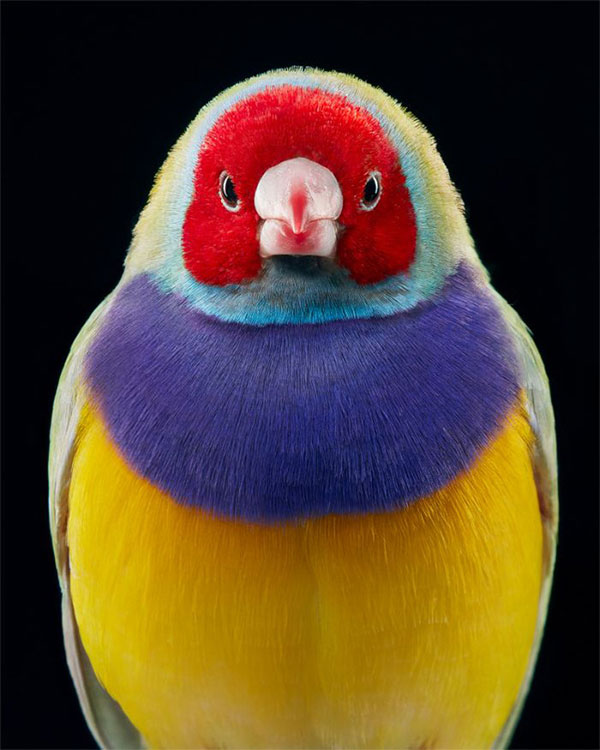
The Gouldian Finch is an endemic bird in Australia, in the Estrildidae family. Also known as the Seven Colored Birds, this bird was first discovered in 1845 by a British naturalist named John Gould. For various reasons, the 20th century has witnessed a rapid decline in the number of 7-color birds in the wild. Scientists estimate that only about 2,500 adult birds remain in the wild. Therefore, in 1992 it was classified as endangered according to the IUCN C2ai criteria.
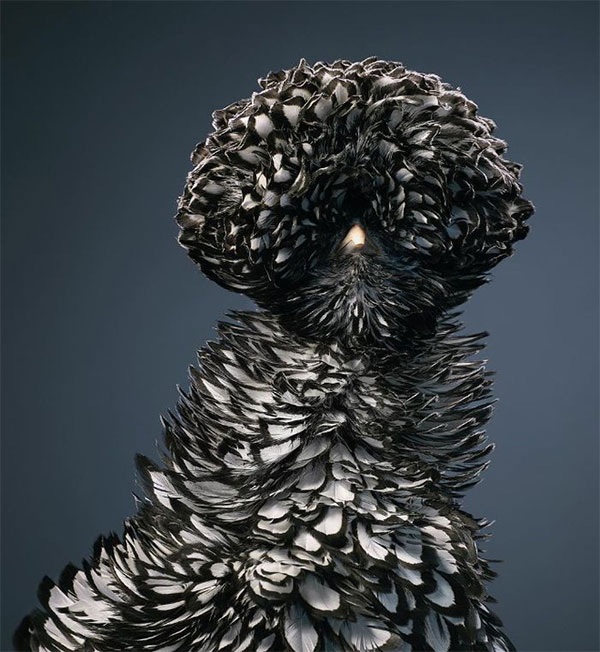 Silver Laced Polish Chicken
Silver Laced Polish Chicken
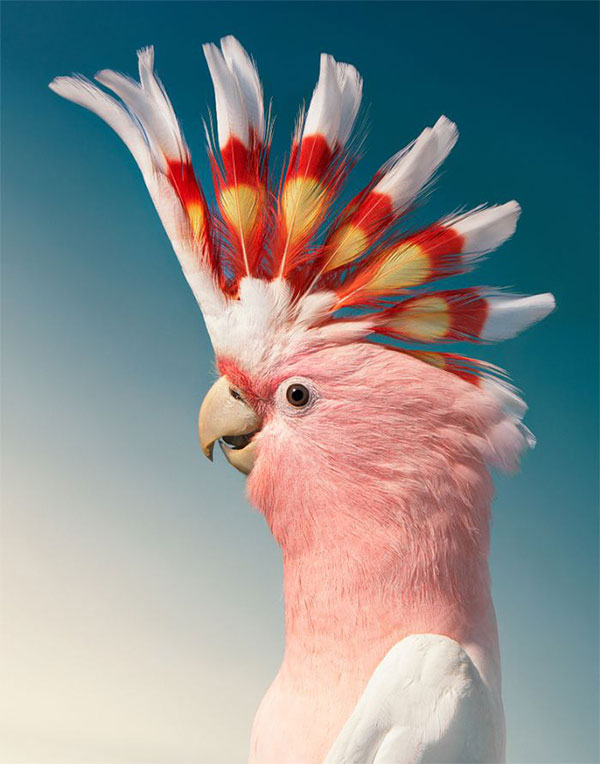
Major Mitchell is a very easily tamed and hostile parrot, known as a “one-owner” bird.
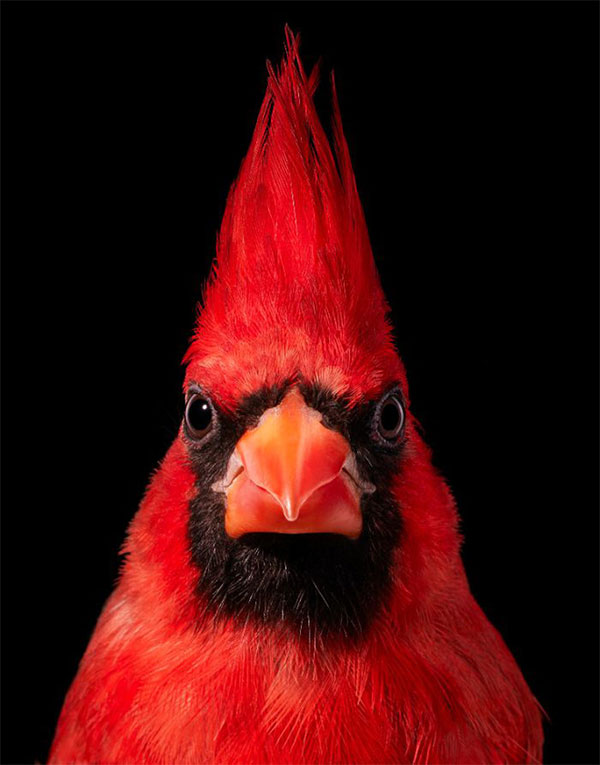 Northern Red Cardinal
Northern Red Cardinal
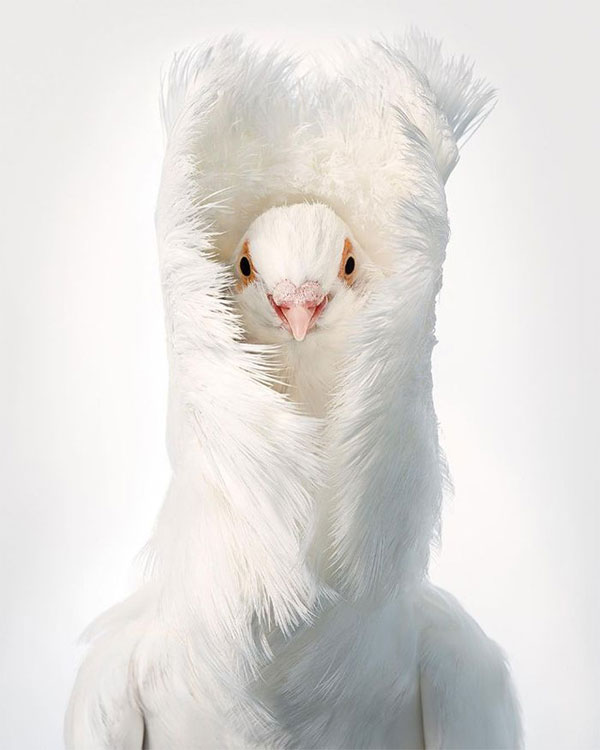
Jacobean Pigeon: The Jacobean pigeon is a domestic pigeon-like dove domesticated in Asia with lion-like plumage. As one of the oldest domestic pigeons in the world, along with many other domesticated pigeons they are descendants of the rock gecko (Columba livia), they either originate from India or originate from Cyprus. They appeared in Europe around the 16th century, then went through four stages of development carried out by breeders.
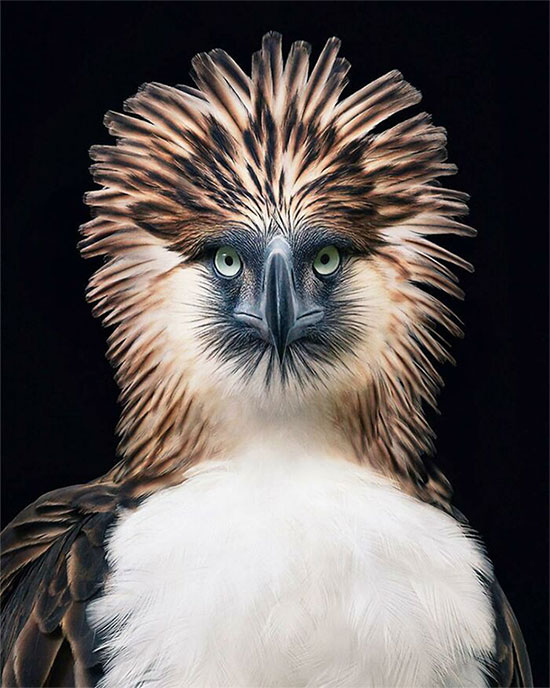
Philippine Eagle: The Philippine Eagle, also known as the Great Philippine Eagle or Monkey-Eating Eagle, is one of the largest, rarest, largest, and most powerful birds in the world. This bird is considered the national bird of the Philippines. It is a predatory bird of the Accipitridae family, discovered in 1896 by British explorer and naturalist John Whitehead who observed the birds and his servant Juan collected the first specimen a few weeks later. The skin of the collected specimen was sent to William Robert Ogilvie-Grant in London in 1896, who first showed it and described the species a few weeks later.
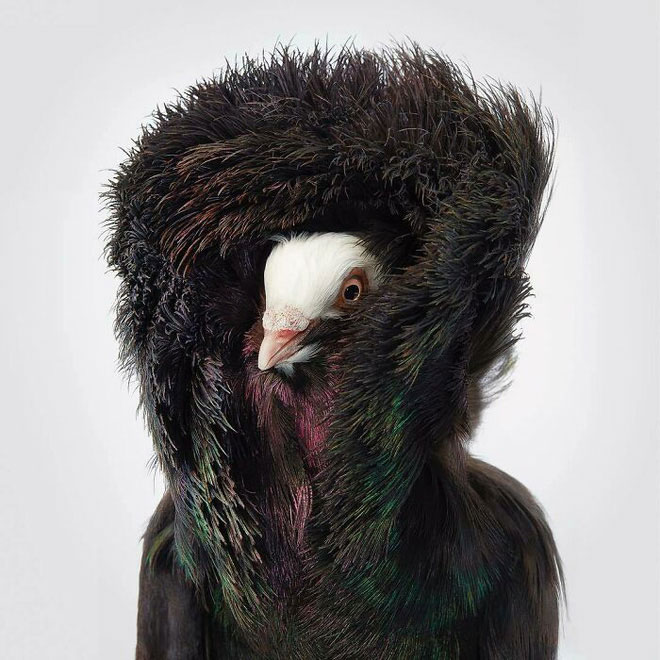 Black Jacobin Pigeon
Black Jacobin Pigeon
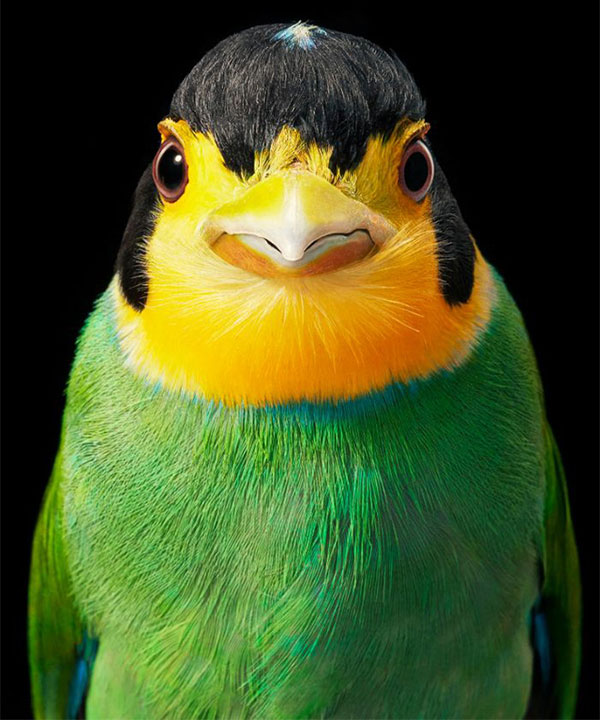
Longtail Broadbill: This is a species of bird in the Eurylaimidae family and is known by another name as the Green Wide Beak inhabiting Hymalaya, Southeast Asia. The feathers of adults are dark green, the head and neck are black, the sides of the neck have two light yellow streaks. Face, throat, saffron collar. The primary and secondary wing feathers are black, green and visible on the fly. The tail feathers are long and narrow, with a dark green above and a black underside. Young birds are darker in color with a blue head, adults are dark green in color, and the head and neck are black. This bird has settled and nested in the jungle where the altitude is less than 1500 – 1800m. Common foraging and nesting on the upper floors of the forest
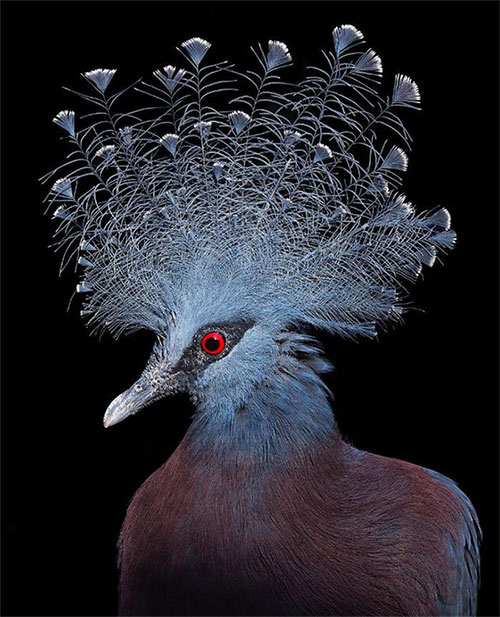 Victoria Crowned Pigeon
Victoria Crowned Pigeon
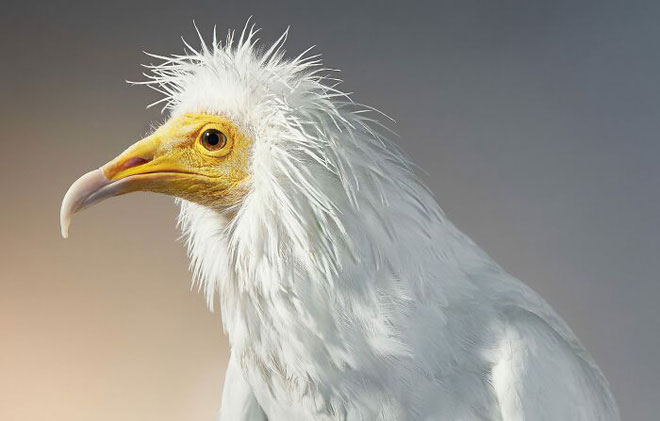 Egyptian Vulture: The Egyptian vulture, also known as the scavenger vulture, is a small vulture belonging to the Old World group of vultures, found from northern Africa to southwestern Asia. It is the only member of the genus Neophron of the Accipitridae family.
Egyptian Vulture: The Egyptian vulture, also known as the scavenger vulture, is a small vulture belonging to the Old World group of vultures, found from northern Africa to southwestern Asia. It is the only member of the genus Neophron of the Accipitridae family.
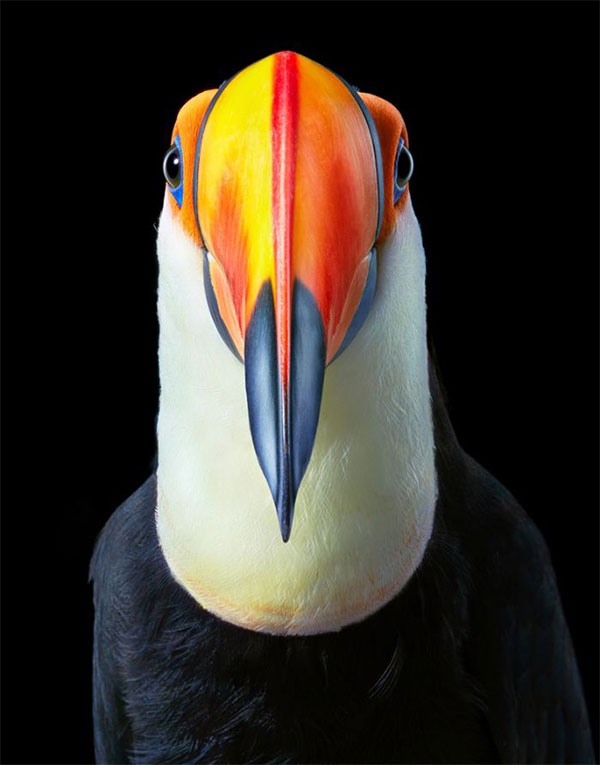 Toco Toucan is the most common bird in the Toucan family, although it is native to the rainforests of South America, but today it is distributed in many other parts of the world. What makes the Toco Toucan one of the most famous birds is its large, colorful beak.
Toco Toucan is the most common bird in the Toucan family, although it is native to the rainforests of South America, but today it is distributed in many other parts of the world. What makes the Toco Toucan one of the most famous birds is its large, colorful beak.
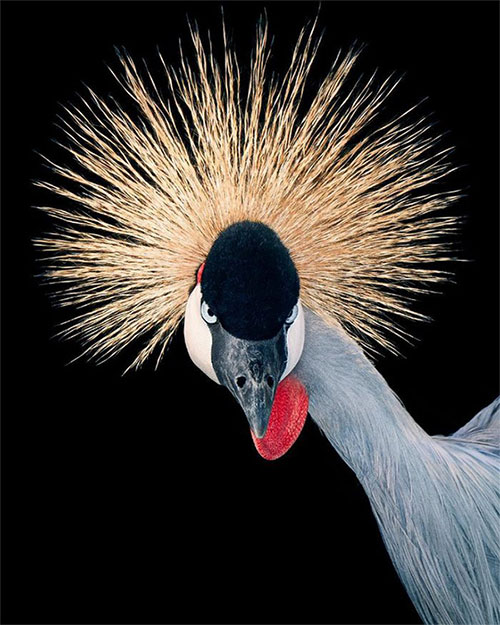
Grey Crowned Crane
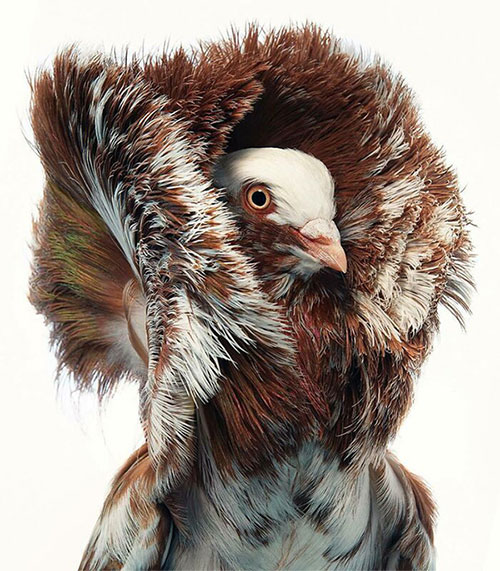
Red Splash Jacobin Pigeon
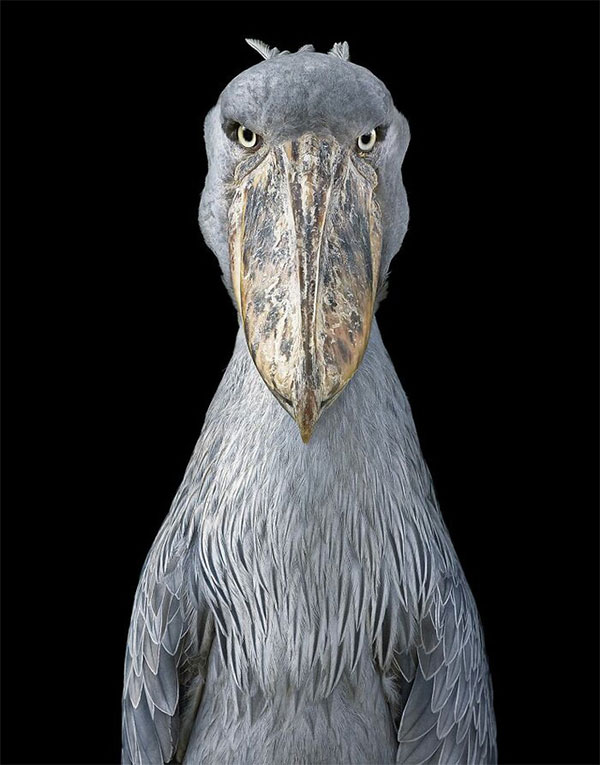
Shoebill: The stork-hoof is a species of bird in the Balaenicipitidae family. The stork is a monospecific family of Balaenicipitidae, often in the traditional Ciconiiformes, but in fact it is a very distinct lineage from Pelecaniformes. The adult bird is 115-150 cm high, 100-140 cm long, has a wingspan of 230-260 cm and weighs 4-7 kg.
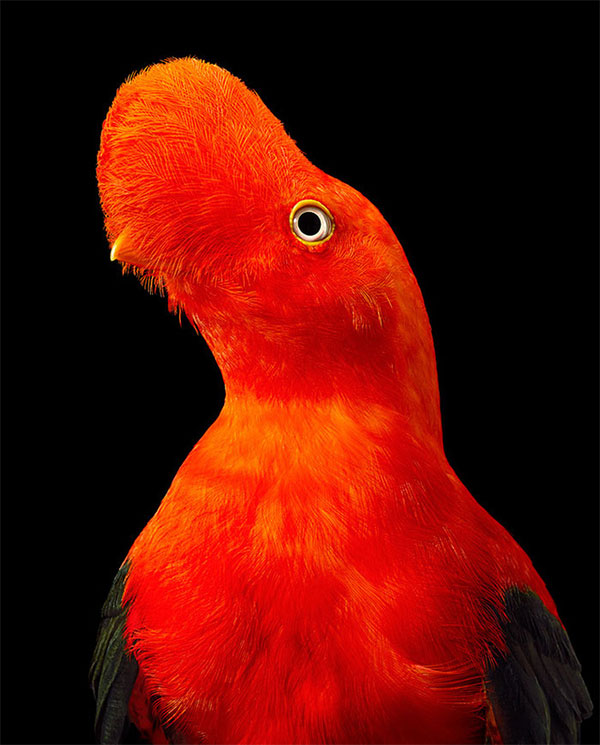
Andean Rooster of the Rock: Also known as Rupicola peruvianus, it is a medium-sized bird of the Cotingidae family, native to the misty forests of the Andes of South America. It is the national flag of Peru.
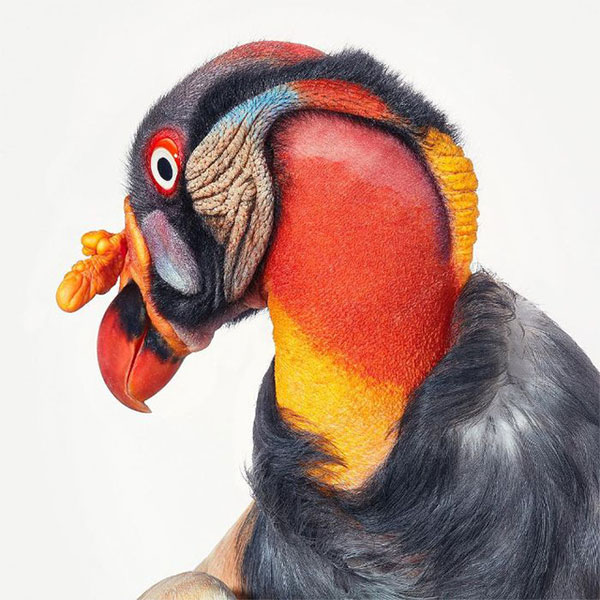
King Vulture: King Vulture is a species of bird in the New World vulture family. King vultures range from southern Mexico to northern Argentina. This vulture lives mainly in lowland tropical forests stretching from southern Mexico to northern Argentina.
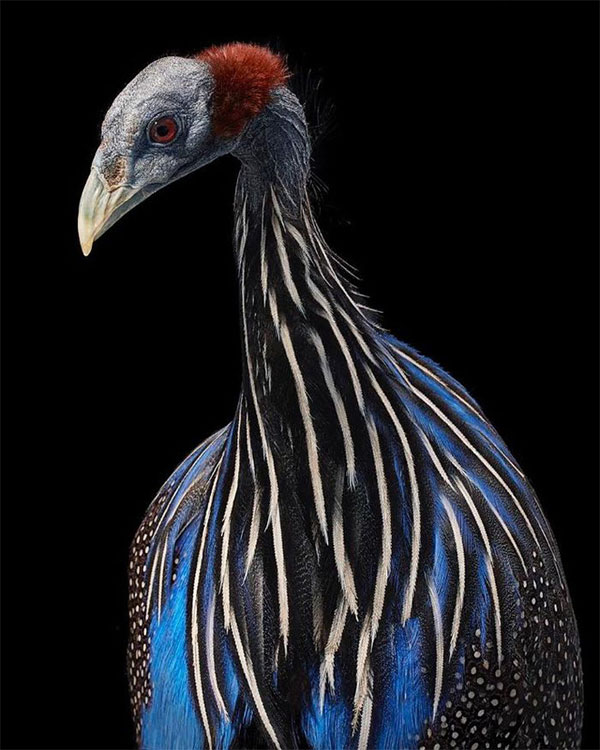
Vultrurine Guineafowl Hen
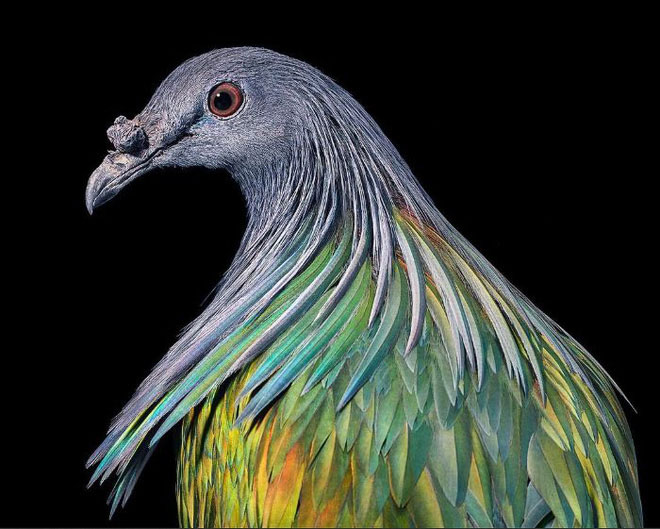
Nicobar Pigeon
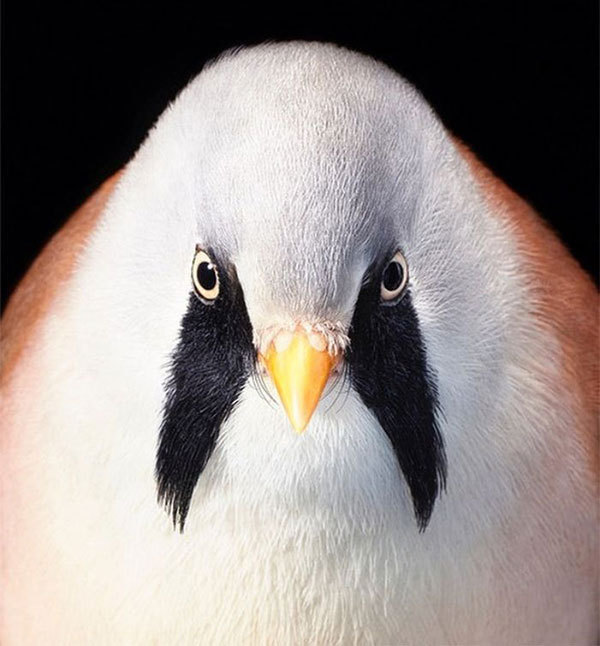
Bearded Tit
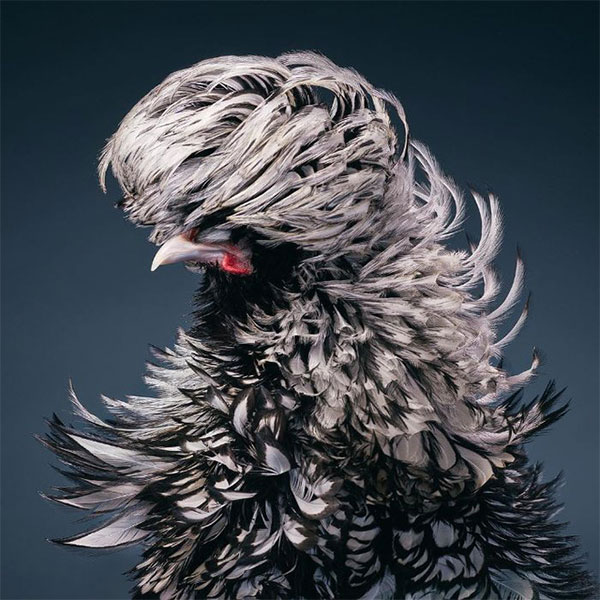
Silver-Laced Rooster
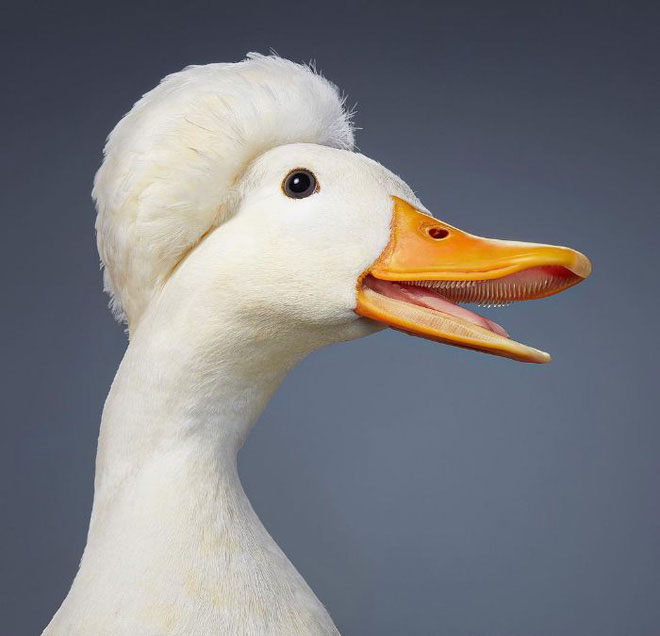
Crested Miniature Duck


